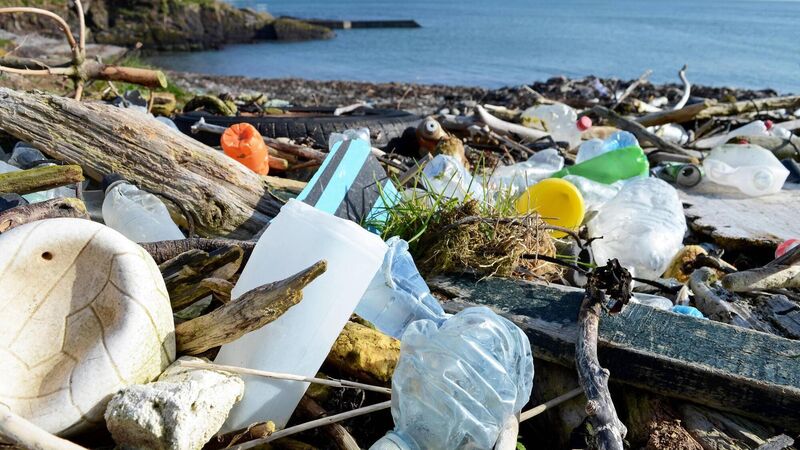Irish Examiner view: Saving our world one step at a time

Litter washed up on a beach in County Cork, Ireland. A campaign hopes to raise awareness about the impact of plastic pollution and convince people to forego single-use plastic.
Try from €1.50 / week
SUBSCRIBEWinter may have passed in more ways than one. Lá Fhéile Bríde, which was celebrated yesterday, for centuries marked a departure point, a precursor to renewal. In 2021 that prospect is especially welcome even if it arrives in the smallest, seemingly unimportant or remote of ways.
One of those also came yesterday when Estonia’s first female prime minister, Kaja Kallas, a 43-year-old lawyer, was sworn in. Kallas promised changes in style and substance for the Baltic nation’s 1.3m citizens. She has recognised the need for “a very clear change on climate policy”. Estonia is, like Ireland, a small country and can hardly save the planet through its own reforms. Rather it — and Ireland — can only be part of a concerted response to the challenge of our time.
Already a subscriber? Sign in
You have reached your article limit.
Annual €130 €80
Best value
Monthly €12€6 / month
Introductory offers for new customers. Annual billed once for first year. Renews at €130. Monthly initial discount (first 3 months) billed monthly, then €12 a month. Ts&Cs apply.
CONNECT WITH US TODAY
Be the first to know the latest news and updates
Newsletter
Sign up to the best reads of the week from irishexaminer.com selected just for you.
Newsletter
Keep up with stories of the day with our lunchtime news wrap and important breaking news alerts.
Newsletter
Sign up to the best reads of the week from irishexaminer.com selected just for you.
Monday, February 9, 2026 - 6:00 AM
Monday, February 9, 2026 - 8:00 AM
Monday, February 9, 2026 - 8:00 AM
© Examiner Echo Group Limited